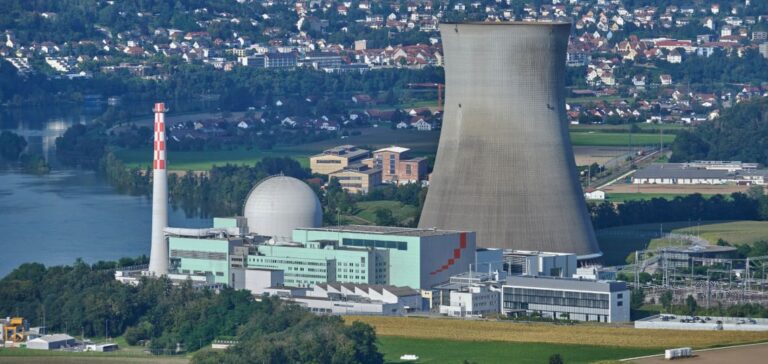French group Framatome announced it has been selected by Kernkraftwerk Leibstadt AG (KKL) to modernise the control systems of the Leibstadt nuclear power plant, Switzerland’s most powerful nuclear facility. The project will be executed using the latest version of Framatome’s TELEPERM XS digital platform, already deployed or being installed in 92 nuclear reactors across 17 countries. The upgrade aims to enhance operational reliability and maintenance efficiency, ensuring continued plant operations at least until 2045.
A strategic project for KKL
Located in the canton of Aargau, the Leibstadt nuclear plant has been operational since 1984. It supplies electricity daily to around two million Swiss households. In 2024, the facility marked its 40th anniversary, representing a significant milestone in its energy lifecycle. Since its commissioning, operator KKL has invested approximately €1.5 billion in maintenance and modernisation. An additional €1 billion is planned over the coming years to maintain safe and stable power production.
TELEPERM XS, a proven solution
Framatome’s TELEPERM XS platform is designed to provide operators with essential reactor data and to automate system responses in the event of failures or anomalies. This digital system acts as the central nervous system of the facility, overseeing all critical operations and safety mechanisms. According to Frédéric Lelièvre, Senior Executive Vice President at Framatome, this partnership with KKL reflects a shared commitment to maintaining reliable operations in line with current nuclear industry standards.
Investment to extend site lifetime
The project is part of a broader technological renewal programme led by KKL, intended to ensure regulatory and technical compliance through 2045. The complete replacement of the control systems is considered a key step in this process. Roland Schmidiger, Chief Executive Officer of Kernkraftwerk Leibstadt AG, stated that this initiative directly supports the plant’s ongoing modernisation strategy.






















